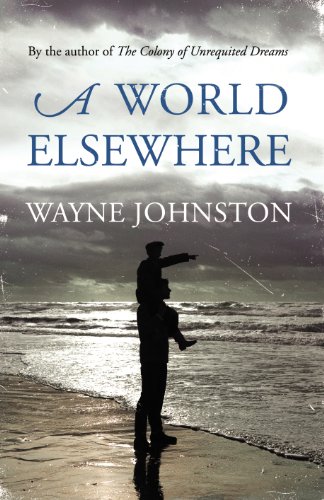A World Elsewhere
Two young men meet at Princeton University in the late 1890s: one, the articulate Landish Druken, son of a wealthy Newfoundland sealing skipper; the other the sophisticated Padgett Vanderluyden, son of a multimillionaire. Both are loners. Landish is trying to write a novel, but each morning, he burns what he’s written. Van intends to build a mansion where he can be isolated from the world and invites Landish to live there. Landish declines, and the friendship is severed. Still determined to write, Landish returns to Newfoundland but refuses to work in his father’s sealskin business. He is disinherited and spirals into poverty and drunkenness. Landish adopts the orphaned baby son of his father’s first mate and, somehow, relying on charity handouts and the occasional rough job, he supports them both. He brings up Deacon unconventionally but with tenderness and compassion.
Landish is a master of the Joycean phrase; when food is short they eat ‘sham chowder’ and ‘lack of lamb’. He tells Deacon about ‘Parodies Lost’. (A World Elsewhere could be described as Finnegan’s Wake meets Citizen Kane.) When poverty finally overwhelms him, he begs his erstwhile friend for help. Van takes them in at Vanderland. Here, Landish and Deacon enter a world of deception and hidden violence where the bond of love and trust between them will be tested to the utmost.
Wayne Johnston’s work is always interesting, and this book is no exception. However, I’m not convinced by Landish’s baby-care. Wayne Johnston’s careful research obviously doesn’t cover the sheer drudgery of infant care: the endless washing of dirty nappies, colic, the miseries of teething, etc are quite unknown.
A World Elsewhere is a story of redemption and the power of love, but it’s also about loneliness, the insidious effect of wealth, and difficult moral choices.










